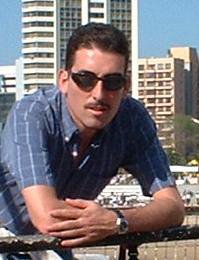Radio Tirana is back on shortwave
Weeks after abruptly suspending its foreign broadcasts, Radio Tirana has returned to the international shortwave bands. The station from the capital of Albania was heard Friday Jan. 27 on 7,110 at 2230 UTC in English for North America and Europe. Reception here in Spain was SIO444.
No official reason has been given why Radio Tirana was off the air, but Andy Sennet at Media Network blog wondered if Albania’s frequent power shortages had something to do with the suspension of broadcasts. During its off-air period, the station could still be heard via Internet Podcast. In any case, it’s good news that Radio Tirana is back transmitting fascinating Albanian music as well news about the emerging Balkan states. By the way, Radio Tirana has a tongue-and-cheek fan club.
While stations in the some former Soviet republics, such as Radio Tashkent, are resorting to Podcasting instead of shortwave for economic reasons, Radio Bulgaria wants DXers to contact them.
Listeners can now download a reception report form from the Bulgarian radio station at its website.
Filling out a form is a lot quicker than writing a full letter and coming up with your own reporting format. During the Cold War years, the station, when it was called Radio Sofia, was a favorite for many DXers offering prizes for contests, booklets, calendars and stickers (like the one above). It also sent out dozens of reception report forms to listeners who wanted to compete for a series of QSL cards and obtain a gold listeners’ certificate. Radio Bulgaria is one of the few European stations that still have a DX program. Those who cannot tune in every weekend can still read a transcript from the Radio Bulgaria webpage.
VOA announced that it will carry President Bush’s State of the Union Address live at 0200 UTC Feb. 2 on all its frequencies in use to Africa and Asia at that time, plus an additional frequency of 7,285 kHz to the Middle East. The president’s address will also be carried live at VOA.
Stations heard daily with good reception under usual noisy Madrid circumstances and monitored with a Realistic DX-440 and Sony ANLP-1 antenna:
·Radio Jordan, 11,690 kHz 1525 UTC Jan. 28 Music dedication program with popular contemporary Arabic and American music, including “Love was made for Me and You” by Al Jarreau and “My Everything” by Barry White hosted by female followed by news at 1600 UTC. Parallel broadcast of domestic 96.3 FM in Amman SIO434
·Voice of Croatia, (transmitter in Germany), 7,285 kHz *2315-2330* UTC Jan. 27 Fast paced newscast (much like in the U.S.) with reports about Croatia and the Balkans followed by sports and weather. A Spanish broadcast followed at 2330UTC. SIO544
·Voice of the Islamic Republic of Iran, 7,320 kHz *1930 UTC Jan. 26 Readings from the Qur´an followed by news and commentary with suggestions that Iran would use short range missiles to defend the country from U.S. backed rebels in the southern provinces. SIO444












